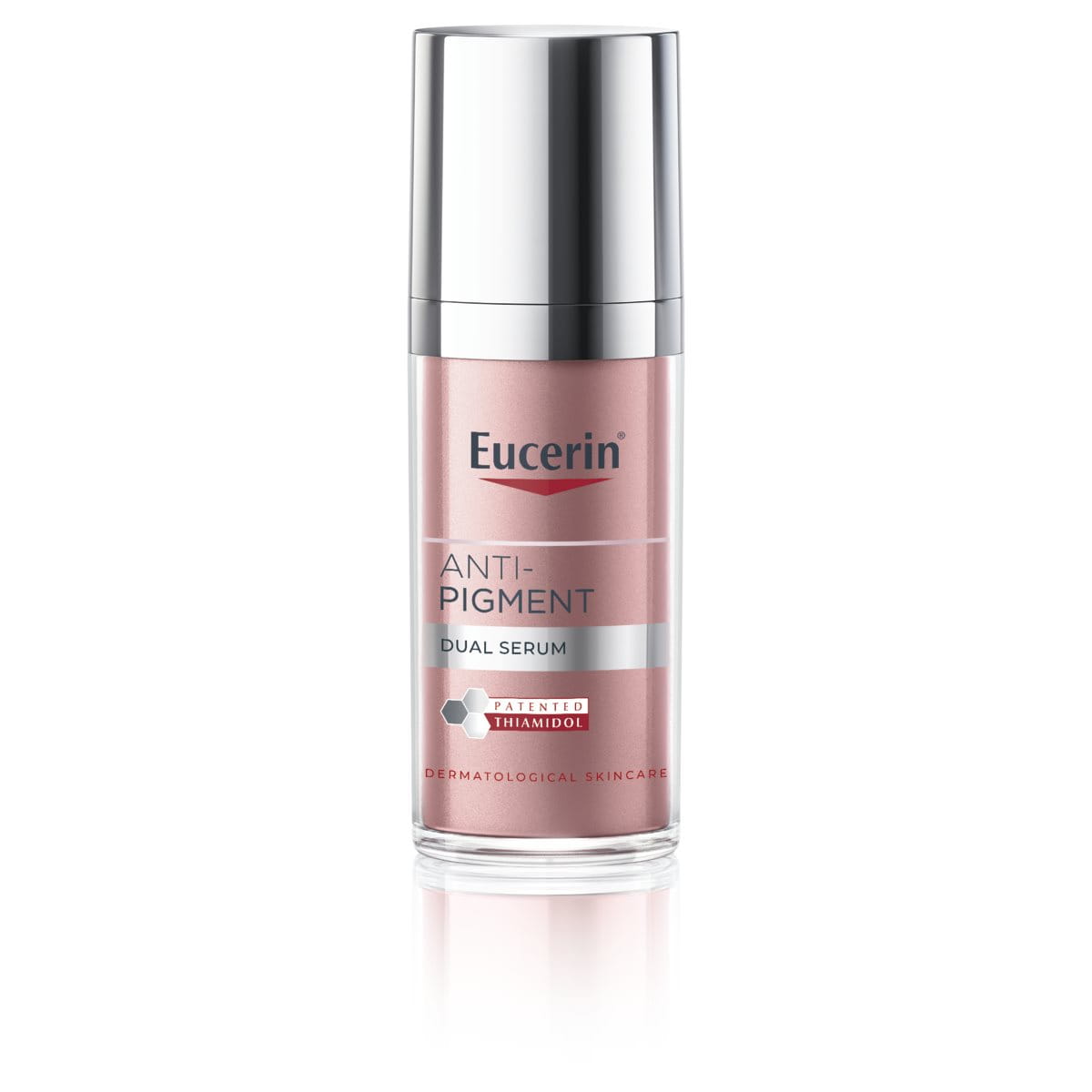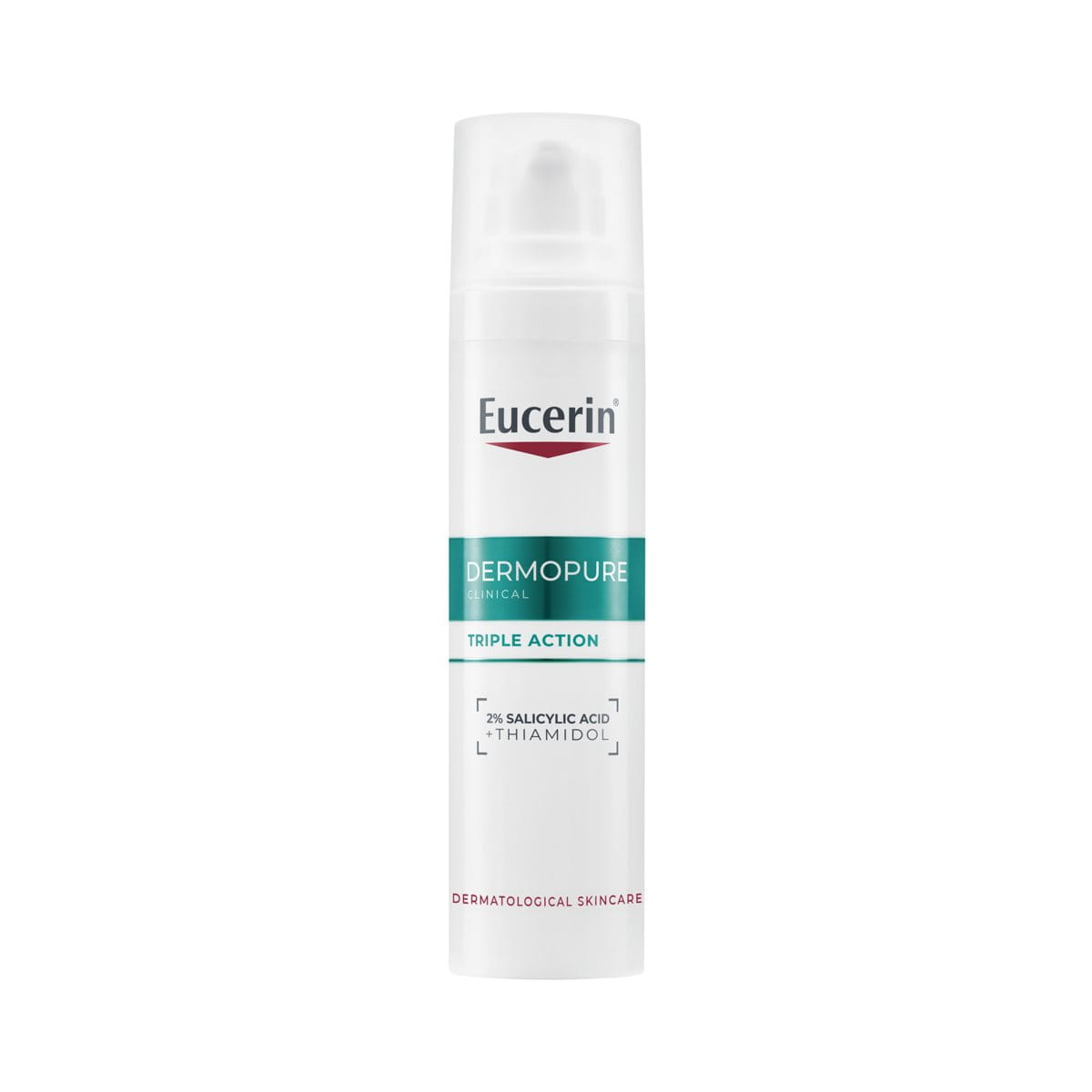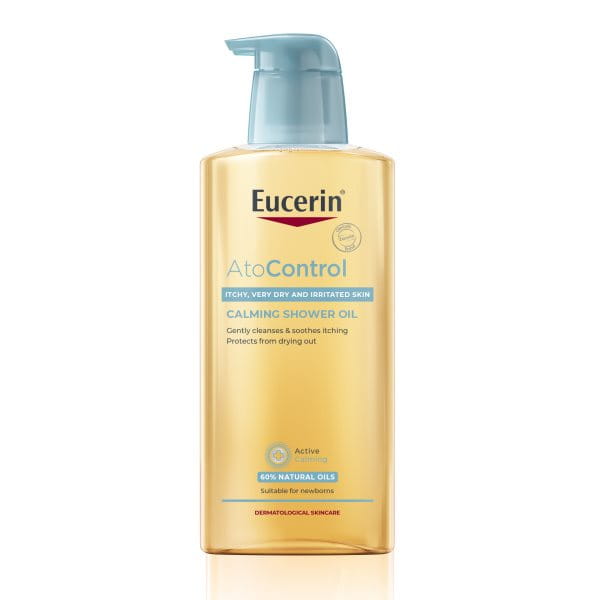Although often described as a childhood disease, one in twelve adults1 also suffers from atopic dermatitis. Usually, atopic dermatitis goes away before the teenage and adult years, but some patients’ symptoms will continue from childhood. Other adults may experience it for the first time.
This article looks at the symptoms, causes and triggers of adult eczema and makes suggestions about how best to care for atopic eczema in adults.
What is adult eczema?
Most children grow out of atopic eczema by the time they reach puberty but, for some, the symptoms persist. Recent research suggests that if you had persistent, late-onset or severe atopic dermatitis as a child then symptoms are more likely to persist into adulthood2.
An estimated 10% of patients continue to suffer from eczema as adults. Sometimes atopic dermatitis can disappear in childhood before returning years later, though it's usually much milder. There are also a number of genetic and environmental factors that make some people more likely to experience atopic dermatitis than others whatever their age.
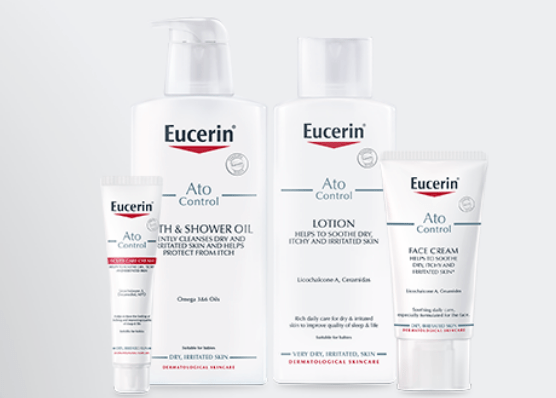
Learn more about atopic eczema on our website:
Can you develop eczema later in life?
Yes, adult-onset eczema is the name given to atopic dermatitis that develops after your 18th birthday. This diagnosis is given to patients who haven't suffered from atopic eczema before. Patients most commonly develop adult-onset eczema in their 50s. There are only a few studies on adult-onset eczema, so it's still an under recognised condition.
What are the symptoms of adult eczema?
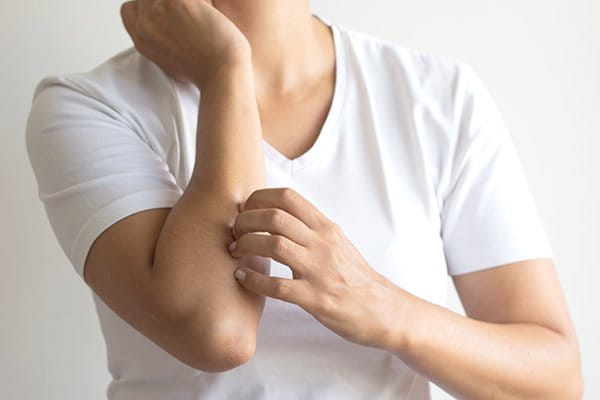

Dry, itchy and irritable skin are all symptoms of atopic eczema in adults. Other symptoms include:
- Red or brown patches
- Thickening of the skin
- Oozing or pus
- Skin feeling hot or a burning sensation
- Marks from scratching
Atopic dermatitis is typified by two phases: the acute, flare-up phase and the period between when skin is calmer and less reactive. Learn more about these phases in What causes eczema to flare up?.
In fair-skinned people atopic skin is normally reddish and may turn brown. In darker skins, the affected area can become lighter or darker as atopic dermatitis affects pigmentation.
Dry, itchy skin is uncomfortable to live with and can have a considerable impact on quality of life. The constant scratching can cause problems in the workplace, sleepless nights3 and stress.
Difference between childhood and adult eczema
Eczema symptoms differ according to age. Even if a patient suffered from atopic dermatitis as a child, the condition can look and feel different in later life. Skin tends to be extremely dry and scaly for adults.
Atopic eczema in adults can be a serious condition, sometimes involving chronic, thick and red plaques. Though adult eczema tends to persist, its severity decreases over the years.
Adult eczema symptoms most commonly appear on the face, back of the neck, scalp, elbow folds, knee cavities, hands and feet. Unlike children, adults tend to suffer from atopic eczema around the eyes as well. Surrounding skin can become very itchy, with thick and dark skin circling the eyes.
What causes eczema in adults?
Atopic dermatitis is linked to a compromised immune system (which becomes hyperactive) and skin barrier function (which becomes vulnerable to allergens and irritants. In response to various factors including heat, stress, scratching or harsh cleansers, skin becomes inflamed.
There are a number of external influences that can trigger a flare-up of atopic dermatitis and lots of things you can do to try and reduce the amount your skin flares-up. The following potential triggers are more commonly associated with adults than babies or children:


Reaction to chemicals in the workplace
Adults with underlying atopic dermatitis are more likely to develop contact dermatitis in the workplace. Contact dermatitis occurs when skin is either irritated by, or allergic to, natural and synthetic chemicals used in the workplace. These can include: aggressive soaps, perfumes, dyes and solvents. Learn more about contact dermatitis in Atopic dermatitis on the hands. Try to limit exposure (e.g. by wearing gloves) and be sure to thoroughly cleanse and moisturise skin regularly and after exposure to trigger irritants.
Climate and pollution
Hot and humid climates, air pollution in cities and changes in temperature have all been known to exacerbate atopic dermatitis. Due to an increase in dry air and indoor heating, eczema flare-ups are more likely in the winter months. Cold, dry air decreases the moisture in your skin.
Stress
Eczema caused by stress is very common, as patients find their skin gets itchier when they're feeling tense. Learn more about stress eczema in Atopic eczema flare-up.
Cigarette smoke
Give up or, at least, reduce the amount you smoke to reduce the chance of the smoke triggering your atopic skin. Studies have shown that exposure to passive smoking or tobacco smoke as a child increases the risk of adult-onset eczema by three times.
Sweat
Exercise is great for mind and body but quick changes in temperature combined with the salts in sweat can cause skin to dry out and trigger inflammation. Try to take regular breaks to cools down, drink lots of water and wear gentle, natural and breathable fabrics.
Chlorine
While chlorine can irritate eczema for some patients, others find the disinfectant used in swimming pools can actually have a soothing effect on skin due to its cleaning properties. Ensure you shower and apply a moisturiser to skin after swimming.
Allergies
Eczema flare-ups are common during the summer months when pollen levels are at their highest.
Food allergy or intolerance
If you're allergic to a certain food, then ingesting those foods can trigger an eczema flare-up. However, identifying environmental causes is a much more effective way of treating the condition. Speak to your doctor if you suspect your diet is triggering your eczema.
Cardiovascular issues
Blood pressure issues in the lower legs can cause specific type of eczema called varicose eczema which is especially common in older people. Learn more here.
How to treat adult atopic dermatitis
Treatment for adults is essentially the same as childhood eczema, focusing on avoiding triggers and maintaining an appropriate skincare routine. Gentle but thorough cleansing and effective moisturisation will help to give your skin the daily care it needs and prolong the period between flare-ups.
How to cleanse adult atopic skin

Look out for a product that has been tested on, and proven to be effective with, atopic skin. Try to avoid products that contain fragrance and colourants. We recommend Eucerin AtoControl Bath and Shower Oil for your body, or Eucerin DermatoCLEAN [HYALURON] Cleansing Milk for your face.
Avoid water that is too hot, because this can dry the skin out, and take quick showers instead of long baths. Pat rather than rub skin dry and apply moisturiser immediately afterwards.
How to moisturise adult atopic skin

Look out for products that contain proven actives such as:
- Licochalcone A: an extract of liquorice to soothe skin and reduce redness
- Ceramides: to strengthen the skin’s barrier
- Natural oils rich in Omega fatty acids to sooth, nourish and protect skin
These ingredients are at the heart of the formula in the Eucerin AtoControl range. Eucerin AtoControl Body Care Lotion is easy to apply all over the body, while the AtoControl Acute Care Cream can be applied to whichever part of your body is experiencing a flare-up of atopic dermatitis. For eczema on the face try the AtoControl Face Cream.
How to soothe and calm skin during a flare-up

If you suffer from atopic dermatitis, consult your doctor. They may recommend:
- a steroid, such as Hydrocortisone 1% Cream
- a more potent cream or ointment
- bandages and wet wraps
- phototherapy (ultraviolet light treatment to reduce inflammation)
- oral corticosteroids and, sometimes, antibiotics, to prevent skin from becoming infected
- antihistamines to reduce severe itching
A non-medical product such as Eucerin AtoControl Acute Care Cream can be used alongside a medical product to soothe skin during a flare-up. In addition to Licochalcone A, the Acute Care Cream contains cooling Menthoxypropandiol and anti-bacterial Decanediol. Apply your topical medical product first and allow it to absorb before applying Eucerin AtoControl Acute Care Cream to the area of skin that is flaring up. You should then follow with the appropriate Eucerin Care product such as Eucerin AtoControl Body Care Lotion for your body.
Tips to prevent adult atopic eczema from reoccurring
There are a variety of ways you can prevent atopic eczema flare-ups and reduce symptoms:
- Don't scratch: It may feel satisfying in the short term, but scratching affected areas can lead to more eczema occurring. Chronic scratching increases the risk of scarring and can cause bleeding.
- Reduce scratching damage: Regularly clip your fingernails to reduce damage from scratching, and consider wearing anti-scratch mittens.
- Wear soft clothing: Cotton is better for your skin than synthetic or wool materials, which can cause overheating.
- Avoid harsh cleansing products: Use soap-substitutes, mild shampoos and non-biological soap powders or detergents.
- Keep track of your triggers: It's good to keep a record of what causes your eczema flare-ups so you can try to avoid these in future.
Sources
- WebMD
- Persistence of atopic dermatitis (AD): A systematic review and meta-analysis. Kim JP, Chao LX, Simpson EL, Silverberg JI. J Am Acad Dermatol. 2016 Oct; 75(4):681-687.e11.Epub 2016 Aug 17.
- Atopic dermatitis from adolescence to adulthood in the TOACS cohort: prevalence, persistence and comorbidities .Mortz CG, Andersen KE, Dellgren C, Barington T, Bindslev-Jensen C. Allergy. 2015 Jul; 7097):836-45. Epub 2015 Apr 16.
Our brand values

We deliver a holistic dermo-cosmetic approach to protect your skin, keep it healthy and radiant.

For over 100 years, we have dedicated ourselves to researching and innovating in the field of skin science. We believe in creating active ingredients and soothing formulas with high tolerability that work to help you live your life better each day.

We work together with leading dermatologist and pharmacist partners around the world to create innovative and effective skincare products they can trust and recommend.
